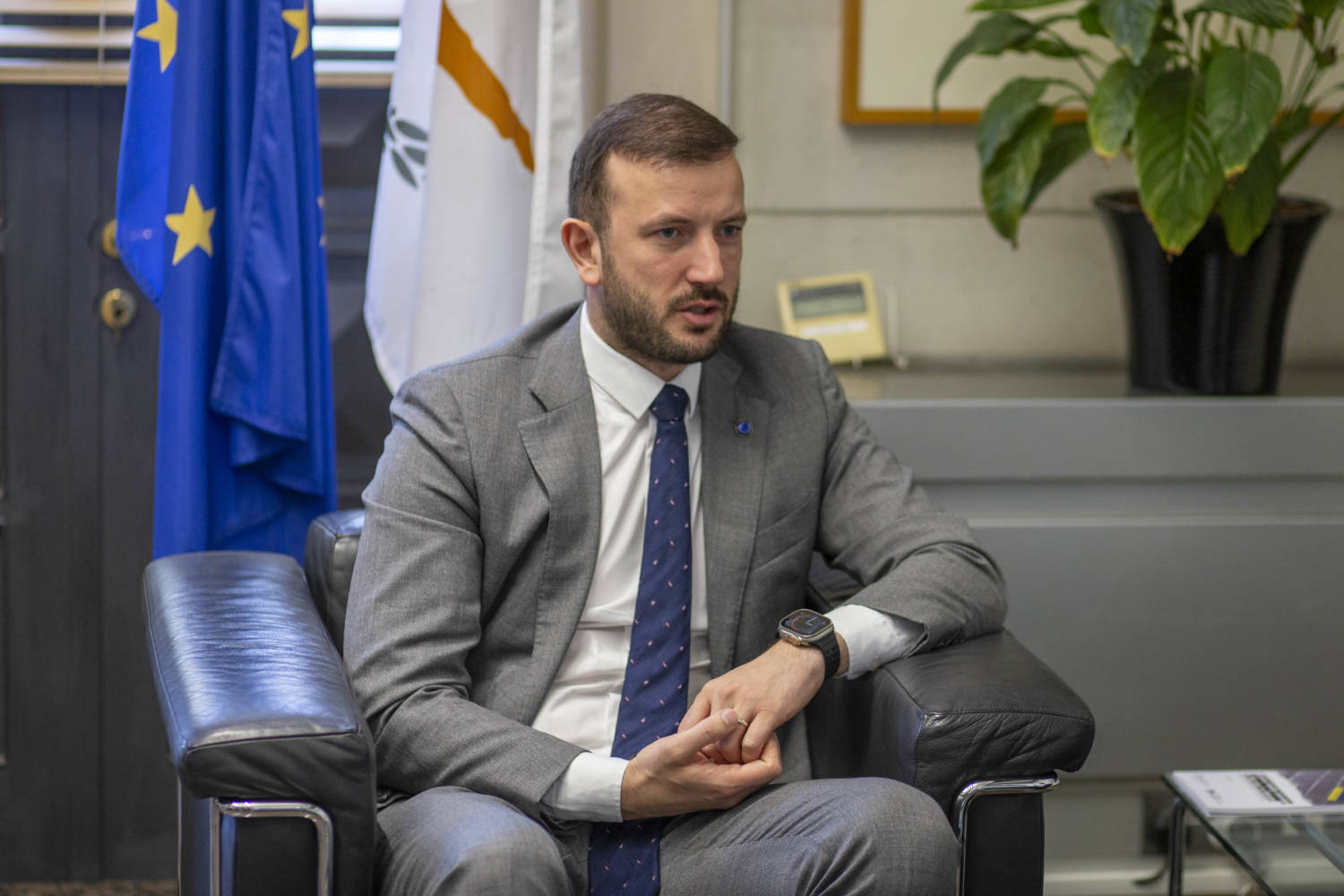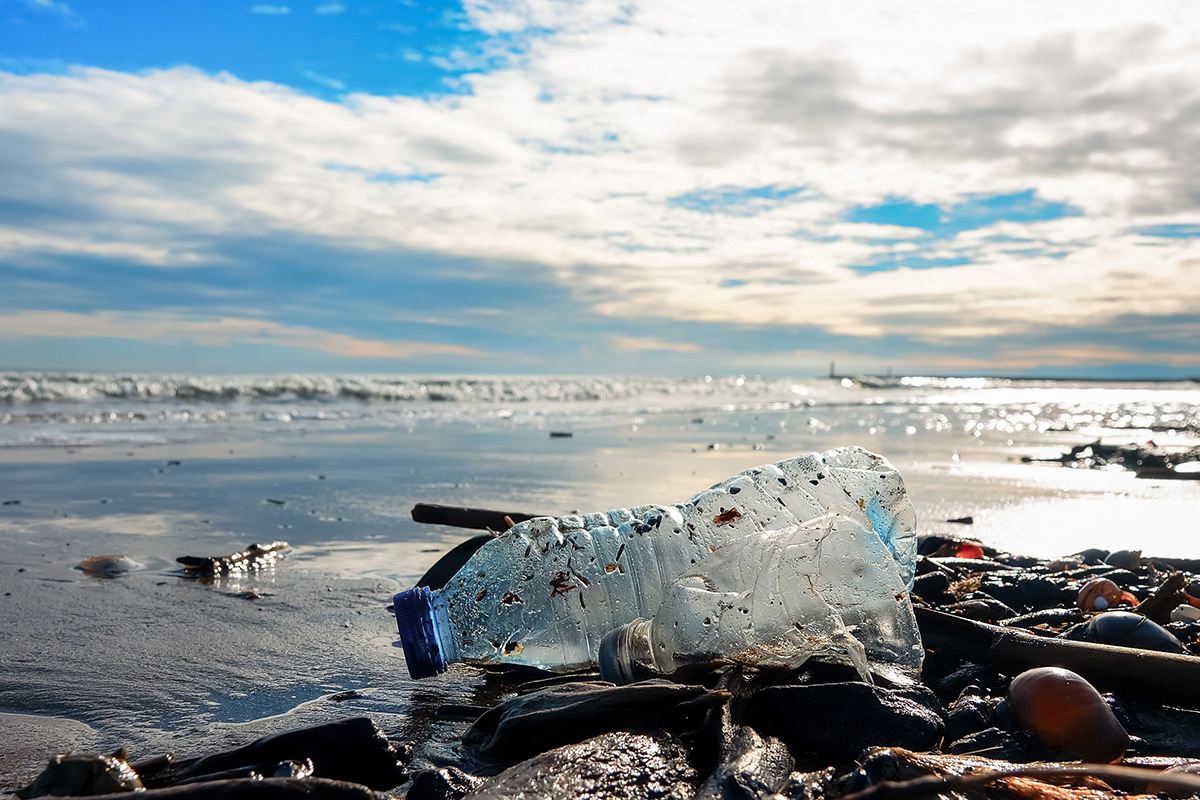Virginijus Sinkevičius, the European Commissioner for the Environment, Oceans and Fisheries, is tasked with addressing one of the most critical issues facing not only the European Union but the entire planet—climate change, a reality we can hardly ignore.
In his interview with Phileleftheros, he discusses the EU’s pioneering actions in environmental protection and the Green Deal’s pathway towards a sustainable future for all citizens. He emphasized the numerous challenges ahead but stressed the need for steadfastness in achieving our climate and environmental goals.
Cyprus, due to its geographical position, is expected to be one of the Member States most affected by climate change, with significant impacts anticipated in sectors like agriculture, tourism, and fisheries. Therefore, it is crucial for all Member States, including Cyprus, to implement the climate targets to mitigate the adverse effects of climate change.
Sinkevičius also highlighted the importance of implementing provisions for Natura2000 areas to ensure that ecosystems can withstand the increasing pressures they face. Cyprus is dealing with infringement procedures concerning the Natura2000 network.
The Commissioner pointed out that the processes followed by the country are unclear, leading to conflicts with other economic activities. He was explicit in his warning that if Cyprus does not take the necessary measures, it might well end up in the European Court over the Natura2000 issues.

The tenure of the current European Commission is ending. How do you assess the work done in your sector? Are there significant projects that remain uncompleted?
This has been a dynamic tenure marked by numerous disruptions, starting with the pandemic and followed by the unlawful invasion of Ukraine by Russia. Nevertheless, the Commission has managed to advance the implementation of the Green Deal. In my portfolio, the three main pillars have been the circular economy, the biodiversity strategy, and the zero-pollution ambition.
Concerning the circular economy, we have developed a plan with over 300 actions, all of which are now being implemented or are in progress. We also started the biodiversity strategy with its cornerstone, the Nature Restoration Law, which we hope to finalise now that we have reached an agreement.
A significant achievement was the international COP15 agreement on nature and people. As for fisheries, I am satisfied with the measures taken during and after the pandemic and the Russian invasion. Some projects remain unfinished, but I believe they are well on their way to being addressed by the new Commission.
The Green Deal is a flagship initiative aimed at making the European economy sustainable. How do you envision its implementation? Do you see Cyprus playing a role in achieving the set goals?
The implementation of the Green Deal directly concerns Cyprus, as it is already a state affected by climate change, threatening its economy. From mid-April, we have seen much higher temperatures than usual, which is expected to continue into the summer, posing a great risk to your agriculture, fisheries, and tourism sectors. Not to mention the impact of water scarcity. Therefore, I believe it is extremely important for all Member States, including Cyprus, of course, to implement the climate targets to slow down the adverse effects of climate change.
We must ensure that our practices change and adapt to a new reality, ensuring that there are adequate means of livelihood for all to avoid the socio-economic pressures on the most affected states. It all starts with the ambition to completely eliminate the use of coal and move towards the development of renewable energy sources, where Cyprus can play a crucial role.
How Can Cyprus contribute to minimising the consequences of climate change?
As I have already said, this also concerns Cyprus; we must implement our agenda not only regarding the reduction of pollution emissions but also by implementing policies for biodiversity, such as completing provisions for the Natura2000 areas to ensure that ecosystems can withstand the increasing pressures.
Additionally, we need to significantly reduce pollution because it enhances the climate crisis and biodiversity loss. Furthermore, we must ensure that we apply the principles of the circular economy to successfully address waste. In this way, we can achieve a strategic economy and create additional jobs.
Cyprus is currently facing proceedings by EU authorities for various breaches related to Natura 2000 sites. Can I have a comment on this matter?
Cyprus is currently facing proceedings for eight violations concerning the Natura 2000 network areas. If this issue is not properly addressed from the outset, it becomes unclear what you’re protecting and what targets you’re trying to achieve, resulting in little progress. In my discussions with the Minister of Agriculture and the Environment, I received assurances that the completion process will move forward in Cyprus, as this has been pending for seven years.
What needs to change is that we must conduct a comprehensive assessment of the protective measures for the Natura 2000 network areas to avoid conflicts with parallel economic activities. In Cyprus, it is not at all clear what the goals of Natura 2000 are, what can be done, and what cannot. I would say that Cyprus is trying to fit a square peg in a round hole without a clear function.
Will measures be taken against Cyprus?
If Cyprus does not take the required actions, the European Union will have no choice but to proceed with the procedures and bring the case before the European Court regarding issues related to Natura 2000.
Mediterranean collaboration
The Mediterranean Sea faces a range of environmental challenges, from pollution to overfishing and overtourism. How can regional countries like Cyprus protect their marine ecosystems?
The Mediterranean Sea has always been integral to the lives of those who dwell around it, a source of income and economic activity, and now it faces serious challenges. Regarding overfishing, we must implement our Common Fisheries Policy to ensure sustainable fishing practices, and regional countries must strengthen their collaboration. They need to enhance their capabilities, work with the same principles, apply the same rules, and ensure a level playing field. The desired outcome depends on all Mediterranean fishermen, not just those from EU member states. I also want to highlight the critical issue of pollution, especially plastic pollution.
We must ensure that plastic pollution from land does not reach the sea, as it often originates there. We need an effective waste management system that addresses waste streams in all countries bordering the Mediterranean Sea, including non-EU member states. Ultimately, we must safeguard the environmental agenda to improve the Mediterranean ecosystem because, at the end of the day, the Mediterranean is a significant source of income, culture, and identity for these countries.
Textile waste
Another issue that you’re emphasising is textile waste. Why do you consider this important? Do you have any recommendations for Cyprus specifically?
Textile waste puts additional pressure on our ecosystems, and it’s a massive waste problem that isn’t adequately addressed. Currently, only 1% of textile products are genuinely recycled, so we must significantly improve the recyclability of textile products. The best solution at present is reuse, giving clothes a second life, as practised by some charities, shops, and online platforms. Equally important is establishing separate collection systems for textile waste.
Currently, the only options for textile products are burning or exporting them to other countries, like those in Africa, which merely shifts the problem elsewhere. We must ensure we don’t create pollution that ends up in other parts of the world, contaminating water and soil and impacting the lives of people in those countries.
Would you agree with measures such as imposing tariffs to make clothing more expensive?
Clothing, fabrics, and specifically garments have become cheaper. In the US, for example, prices have dropped by 18%, and the average household spends 6% more on clothing. What’s important is ensuring sustainable consumption, meaning consumers shouldn’t buy things they don’t need.
Often, unworn clothes end up in landfills, a waste of resources and the clothes themselves. For instance, producing a single pair of jeans requires over 10,000 litres of water, not to mention chemicals and other resources that are literally thrown away. I believe consumers should have choices and be fully informed.
That’s why we proposed green designs so consumers can see the environmental footprint of the clothes they want to buy and make more sustainable choices, perhaps opting for a less harmful, recyclable, or longer-lasting product.






